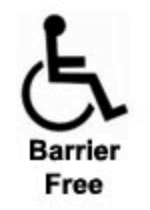Frequently Asked Questions
No. The amount of income is what matters.
Porting to another county involves coordination. You become a participant in the receiving PHA’s program which affects the rent calculation. One reason for the difference is that each area has different HUD-established Fair Market Rents and utility allowances. While out-of-pocket rent is capped at 30% of a tenant’s income for public housing, Section 8 rent can range from 30-40% of the tenant’s income. While the federal program dictates most of the rules for calculating income and rent, there can be small variations based on the local housing market.
Yes, provided both public housing agencies approve the transfer (or port) of the voucher from one agency to another. The receiving agency must already have a Section 8 program to accept the ported voucher.
First, we don’t expect any of our units to fail Section 8 Housing Quality Standards (HQS) inspection. If a unit did fail inspection, we would find a finished, approved unit for the tenant to move into and the tenant would not be required to move back into the old unit.
The primary benefit is the option for choice mobility to move into the private rental market after one year. Right now, tenants do not have the option for continued assistance if they move out of the low-rent public housing program without applying for the Section 8 waiting list.
Not necessarily. Section 8 tenant-based voucher holders are permitted to pay up to 40% of their income on rent. Some families choose this option if they find a rental they like that’s a little more expensive than what their voucher will support. Your rent amount in a new unit will depend on your income, the cost of the unit, and if you choose to pay more toward rent.
Yes, when the program is converted, all tenants must sign a one-year lease. If you want to transfer with a Section 8 tenant-based voucher to use in the private rental market, you can after the initial lease expires.
No. You have up to 180 days of paying the full rent for the unit (zero rental assistance) before you are removed from the program and are no longer considered a Section 8 participant. After being removed, you may remain in the unit and continue paying full rent.
We do not expect any public housing units will need renovations requiring tenants to temporarily or permanently relocate while the work is completed.
Yes, it does.
We received clarification from HUD on this question: The Capital Needs Assessment does not have to be completed before the application is submitted. It is required before HUD approves the application.


